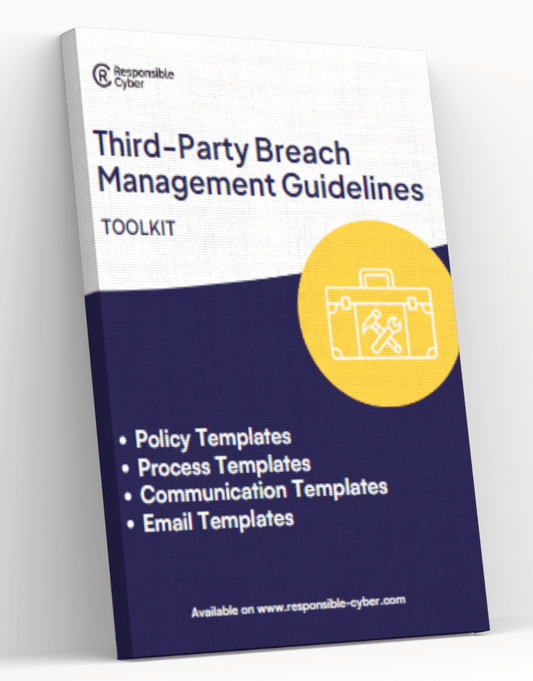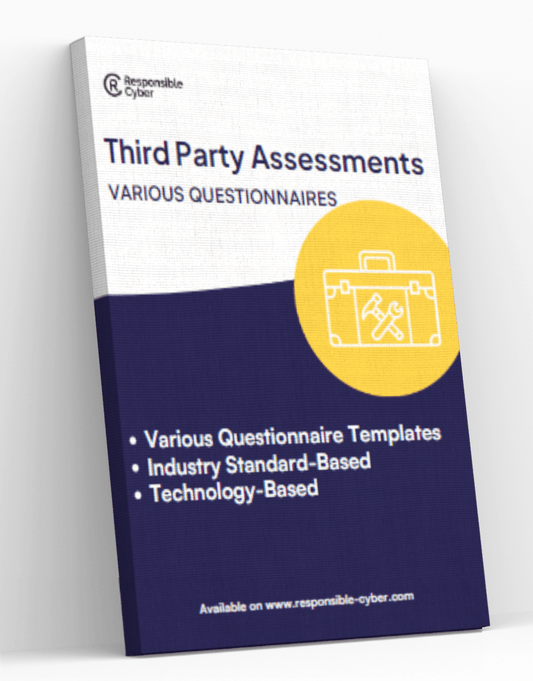Third-Party Risk Management (TPRM) in the Financial Industry: A Comparative Analysis of France, the UK, and Singapore

In the financial industry, Third-Party Risk Management (TPRM) is crucial for maintaining operational integrity, ensuring regulatory compliance, and protecting sensitive data. Different regions have their unique regulatory frameworks and best practices. This article provides an exhaustive comparative analysis of TPRM in France, the UK, and Singapore, highlighting the similarities, differences, and key strategies for effective risk management.
Regulatory Frameworks
France
General Data Protection Regulation (GDPR):
- The GDPR sets stringent standards for data protection, applicable across the European Union, including France. Financial institutions must ensure that their third-party vendors comply with GDPR requirements, including data processing agreements, security measures, and breach notification protocols.
Commission Nationale de l'Informatique et des Libertés (CNIL):
- CNIL provides specific guidelines for managing personal data, ensuring GDPR compliance. Financial institutions must adhere to CNIL’s standards for data protection, including those involving third-party vendors.
Autorité de Contrôle Prudentiel et de Résolution (ACPR):
- ACPR supervises the banking and insurance sectors in France, ensuring financial stability and compliance with regulatory requirements, including those related to third-party risk management.
The UK
General Data Protection Regulation (GDPR):
- Post-Brexit, the UK has retained GDPR standards under the Data Protection Act 2018. Financial institutions must ensure their third-party vendors comply with these data protection requirements.
Financial Conduct Authority (FCA):
- The FCA provides guidelines for managing outsourcing and third-party risks in the financial sector. These guidelines emphasize thorough due diligence, continuous monitoring, and clear contractual obligations.
Bank of England and Prudential Regulation Authority (PRA):
- The PRA oversees the prudential regulation of banks, building societies, insurers, and major investment firms. It focuses on the stability of the financial system, including managing third-party risks.
Singapore
Personal Data Protection Act (PDPA):
- The PDPA sets out requirements for personal data protection in Singapore. Financial institutions must ensure that third-party vendors handling personal data comply with PDPA provisions.
Monetary Authority of Singapore (MAS) Guidelines:
- MAS provides comprehensive guidelines for managing outsourcing and third-party risks. These guidelines emphasize operational resilience, data confidentiality, and continuous monitoring of third-party service providers.
Cybersecurity Act:
- This act mandates critical information infrastructure (CII) owners to ensure the cybersecurity of their systems, including those managed by third-party vendors. Regular risk assessments and adherence to cybersecurity standards are required.
Key Components of TPRM
1. Comprehensive Vendor Due Diligence
- France: Detailed due diligence to assess vendor compliance with GDPR and CNIL guidelines, focusing on data protection measures and operational stability.
- UK: Thorough due diligence to evaluate vendor compliance with GDPR, FCA, and PRA guidelines, ensuring robust cybersecurity and operational resilience.
- Singapore: Extensive due diligence to ensure vendor adherence to PDPA and MAS guidelines, emphasizing data protection and cybersecurity standards.
2. Continuous Monitoring and Auditing
- France: Real-time monitoring and regular audits to ensure ongoing compliance with GDPR and CNIL standards, updating risk assessments based on findings.
- UK: Continuous monitoring tools and periodic audits to ensure compliance with GDPR, FCA, and PRA standards, promptly addressing any identified risks.
- Singapore: Implementing real-time monitoring and regular audits to ensure compliance with PDPA, MAS, and Cybersecurity Act requirements, focusing on continuous improvement.
3. Contractual Safeguards
- France: Contracts must clearly outline GDPR compliance obligations, data protection requirements, and incident response protocols.
- UK: Detailed contracts specifying GDPR, FCA, and PRA compliance, including data handling, breach notification, and audit rights.
- Singapore: Contracts that include PDPA and MAS compliance requirements, emphasizing data protection, incident reporting, and termination clauses.
4. Incident Response Planning
- France: Comprehensive incident response plans detailing steps for identifying, containing, and mitigating breaches, with regular drills to ensure preparedness.
- UK: Incident response plans that cover detection, response, and recovery from breaches, including third-party vendors, with regular testing.
- Singapore: Detailed incident response plans compliant with PDPA and MAS guidelines, incorporating regular simulations and drills to ensure effectiveness.
5. Training and Awareness
- France: Regular training for employees and vendors on GDPR and CNIL requirements, emphasizing data protection and incident response.
- UK: Training sessions for employees and third-party vendors on GDPR, FCA, and PRA compliance, focusing on risk management and data protection.
- Singapore: Comprehensive training programs for staff and vendors on PDPA, MAS, and cybersecurity requirements, ensuring awareness and compliance.
Leveraging Advanced Technologies
Artificial Intelligence (AI) and Machine Learning (ML):
- France, UK, Singapore: All regions utilize AI and ML to enhance risk detection and predictive analytics, identifying patterns and anomalies indicative of potential risks.
Blockchain Technology:
- France, UK, Singapore: Implementing blockchain for secure and transparent transactions, providing an immutable record of vendor interactions, enhancing transparency and security.
Real-Time Data Analytics:
- France, UK, Singapore: Using real-time data analytics to continuously monitor and analyze vendor performance and security measures, enabling proactive risk management.
Comparative Analysis
Regulatory Rigor:
- France and UK: Both follow GDPR, ensuring a high level of data protection and privacy. The UK’s additional FCA and PRA guidelines provide a detailed framework for financial sector compliance.
- Singapore: PDPA and MAS guidelines are similarly stringent, with an added focus on cybersecurity through the Cybersecurity Act.
Focus on Cybersecurity:
- France and UK: Emphasize robust cybersecurity measures, with regulatory frameworks ensuring comprehensive risk management.
- Singapore: Strong emphasis on cybersecurity, particularly for critical information infrastructure, with rigorous MAS and Cybersecurity Act requirements.
Operational Resilience:
- France, UK, Singapore: All three regions mandate comprehensive operational resilience strategies, including continuous monitoring, incident response planning, and regular training.
Technological Integration:
- France, UK, Singapore: Leveraging advanced technologies like AI, ML, and blockchain for enhanced TPRM is common across all regions, ensuring proactive and effective risk management.
Conclusion
Effective Third-Party Risk Management is critical for financial institutions in France, the UK, and Singapore, driven by stringent regulatory frameworks and the need for robust cybersecurity measures. By conducting thorough due diligence, continuous monitoring, robust contractual safeguards, comprehensive incident response planning, and leveraging advanced technologies, financial institutions can ensure compliance and protect their operations. Understanding the nuances of TPRM in each region helps organizations implement best practices tailored to their specific regulatory environments.
For further insights and resources, explore materials from CNIL, FCA, PRA, and MAS.







